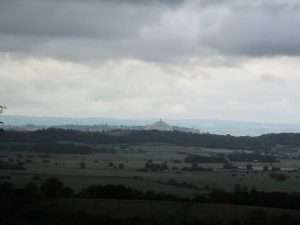A correspondent in the letters columns of today’s Financial Times identifies a problem with computer-controlled driverless cars that has so far seemed to have received little attention. Rosalind Maudslay of Rothbury in Northumberland asks what would happen on rural roads in places like Northumberland or Somerset or the Scottish Highlands. As someone driving roads in Somerset that are sometimes barely adequate to accommodate one car, let alone two, the letter struck a chord. How would Google technology deal with the roads around our village, particularly at this time of the year when mud is more evident than tarmac on particular lanes?
The FT letter highlights the need for common sense and goodwill, to which I would be inclined to add “local knowledge.” Negotiating the roads in rural Somerset demands a capacity to discern hand signals and flashes of headlights; it demands an awareness not only of the width of road required for one’s own vehicle, but an anticipation of how much space is required by the other driver. Nuance is all when it comes to driving in these parts.
A Google-controlled car might be able to estimate to the nearest millimetre how much room is required, what it cannot do is to know how soft a verge might be, nor what might be the reaction of the person driving the manually-controlled oncoming vehicle. There are roads in our neighbourhood where no-one would hesitate putting two wheels into the mud at the edge of the road, and other roads where only a fool would depart from firm tarmac. Oncoming drivers will tend to be accommodating if they drive cars like my aged Peugeot 207 or mud-spattered farm jeeps; people in shiny Mercedes Benz or BMWs are unlikely to diverge from the driest part of the thoroughfare. Expensive German cars will be joined by the drivers of hire cars and those from urban areas; mud and dung are unfamiliar terrain.
Technology is making progress, perhaps Google-controlled trains will become universal, but it falls far short of the capacity for discernment that is required when driving a rural road. If every car was computer-controlled, then it might be feasible, but anyone who knows rural communities will know when the day when farmers hand over their keys is a long way off. Computer technology depends on programming, it depends on planning, it depends on the observance of rules. Identifying the roads of Somerset as presenting a challenge, the letter to the FT recognises that people here are not programmable.
